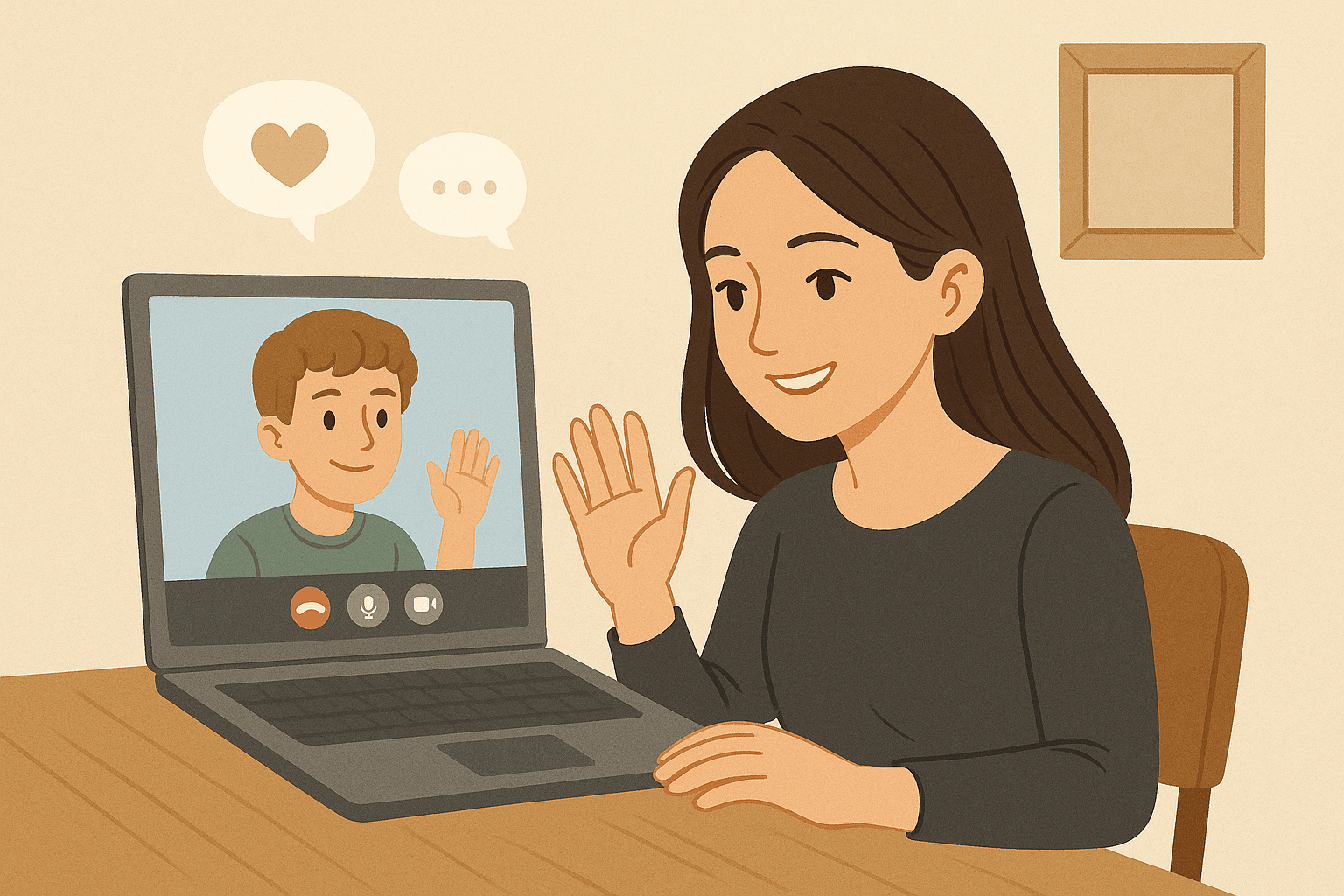“Digital minimalism is a philosophy that helps you question what digital communication tools (and behaviours surrounding these tools) add the most value to your life. It is motivated by the belief that intentionally and aggressively clearing away low-value digital noise, and optimising your use of the tools that really matter, can significantly improve your life.” - Cal Newport, Author of Digital Minimalism
Digital Minimalism isn’t about removing all technologies from your life and reverting back to ye olde times! It’s about spending the time to really delve deep into your digital habits and have a look at how you spend your time on your devices.
Is it procrastination or is it useful?
Do I feel good when using my devices or does it affect my physical, mental and emotional wellbeing?
Am I wasting large amounts of time on my devices which is affecting my other life commitments?
Am I struggling to sleep because I stay up late engaging with my devices?
These are just some of the questions you could ask yourself to get the ball rolling on developing a way you choose to use your devices in a way that enhances your life, not hinders!
Let’s face it, technology and the internet is here to stay. So as digital citizens, we need to find strategies and establish boundaries that allow for successful integration of technology into our lives.
Cal Newport is the author of the original Digital Minimalism book and he provides the core principles for this philosophy:
Missing out is not negative. Many digital maximalists, who spend their days immersed in a dreary slog of apps and clicks, justify their behaviour by listing all of the potential benefits they would miss if they began culling services from their life. I don’t buy this argument. There’s an infinite selection of activities in the world that might bring some value. If you insist on labelling every activity avoided as value lost, then no matter how frantically you fill your time, it’s unavoidable that the final tally of your daily experience will be infinitely negative. It’s more sensical to instead measure the value gained by the activities you do embrace and then attempt to maximise this positive value.
Less can be more. A natural consequence of the preceding principle is that you should avoid wasting your limited time and attention on low-value online activities, and instead focus on the much smaller number of activities that return the most value for your life. This is a basic 80/20 analysis: doing less, but focusing on higher quality, can generate more total value.
Start from first principles. Digital maximalists tend to accept any online activity that conceivably offers some value. As most such activities can offer you something (few people would write an app or launch a website with no obvious purpose) this filter is essentially meaningless. A more productive approach is to start by identifying the principles that you as a human find most important — the foundation on which you hope to build a good life. Once identified, you can use these principles as a more effective filter by asking the following question of a given activity: will this add significant value to something I find to be significantly important to my life?
The best is different than the rest. Assume a given online activity generates a positive response to the question from the preceding principle. This is not enough. You should then follow up by asking: is this activity “the best” way to add value to this area of my life? For a given core principle, there may be many activities that can offer some relevant value, but you should focus on finding the small number of activities that offer the most such value. The difference between the “best” and “good enough” in this context can be significant. For example, someone recently told me that she uses Twitter because she values being exposed to diverse news sources (she cited, in particular, how major newspapers were ignoring aspects of the Dakota pipeline protests). I don’t doubt that Twitter can help support this important principle of being informed, but is a Twitter feed really the best use of all the Internet has to offer to achieve this goal?
Digital clutter is stressful. The traditional minimalists correctly noted that living among lots of physical clutter is stressful. The same is true of your online life. Incessant clicking and scrolling generates a background hum of anxiety. Drastically reducing the number of things you do in your digital life can by itself have a significant calming impact. This value should not be underestimated.
Attention is scarce and fragile. You have a finite amount of attention to expend each day. If aimed carefully, your attention can bring you great meaning and satisfaction. At the same time, however, hundreds of billions of dollars have been invested into companies whose sole purpose is to hijack as much of your attention as possible and push it toward targets optimised to create value for a small number of people in Northern California. This is scary and demands diligence on your part. As I’ve written before, this is my main concern with large attention economy conglomerates like Twitter and Facebook: it’s not that they’re worthless, but instead it’s the fact that they’re engineered to be as addictive as possible.
Many of the best uses of the online world support better living offline. We’re not evolved for digital life, which is why binges of online activities often leave us in a confused state of strung out exhaustion. This explains why many of the highest return online activities are those that take advantage of the Internet to improve important aspects of your offline life. Digital networks, for example, can help you find or form a community that resonates with you, but the real value often comes when you put down your phone and go out and engage with this new community IRL.
Be wary of tools that solve a problem that didn’t exist before the tool. GPS helped solve a problem that existed for a long time before it came along (how do I get where I want to go?), so did Google (how do I find this piece of information I need?). Snapchat, by contrast, did not. Be wary of tools in this latter category as they tend to exist mainly to create addictive new behaviours that support ad sales.
Activity trumps passivity. Humans, deep down, are craftsmen. We find great satisfaction in creating something valuable that didn’t exist before. Some of the most fulfilling online activities, therefore, are those that involve you creating things, as opposed to simply consuming. I’m yet to meet someone who feels exhilarated after an evening of trawling clickbait, yet I know many who do feel that way after committing a key module to an open source repository.
The bottom line of this general thinking is that a simple, carefully curated, minimalist digital life is not a rejection of technology or a reactionary act of scepticism; it is, by contrast, an embrace of the immense value these new tools can offer…if we’re willing to do the hard work of figuring out how to best leverage them on behalf of the things we truly care about.
We highly recommend you check out his book (and all his others!). All can be found at www.calnewport.com.



